 Hey there, eco-warriors and comfort-seekers! Are you ready to embrace the future of heating with style and sustainability? At Solares Energies, we’re not just about providing energy solutions; we’re about creating a cosy, green future for you and your family. With over 15 years of experience and a warm presence in sunny Spain, we’re your go-to company for all things renewable energy! – If you’re looking for the best Heat Pumps Spain has to offer, look no further!
Hey there, eco-warriors and comfort-seekers! Are you ready to embrace the future of heating with style and sustainability? At Solares Energies, we’re not just about providing energy solutions; we’re about creating a cosy, green future for you and your family. With over 15 years of experience and a warm presence in sunny Spain, we’re your go-to company for all things renewable energy! – If you’re looking for the best Heat Pumps Spain has to offer, look no further!
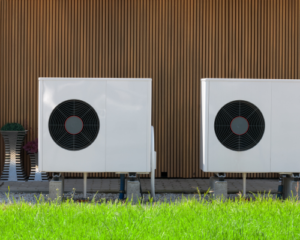 Heat pumps are the superheroes of the heating world – quiet, efficient, and oh-so-green. These fantastic devices work by transferring heat from the great outdoors into your home, providing a warm embrace on those chilly days and cool relief when the summer sun is beaming. It’s like magic, but it’s science!
Heat pumps are the superheroes of the heating world – quiet, efficient, and oh-so-green. These fantastic devices work by transferring heat from the great outdoors into your home, providing a warm embrace on those chilly days and cool relief when the summer sun is beaming. It’s like magic, but it’s science!
We know what you’re thinking – “Can something this good be true?” Absolutely! Heat pumps are a triple threat in the best way possible:
Efficient: They use less energy than traditional heating systems, making them a friend to both your wallet and the planet.
Economical: Lower energy usage means lower utility bills.
Eco-Friendly: Less energy consumption equals a smaller carbon footprint. You’ll be doing your part in keeping our beautiful planet green and healthy.
At Solares Energies, we’ve spent over 15 years mastering the art of renewable energy. We’ve seen it all, done it all, and are excited to bring this wealth of knowledge and expertise to your doorstep. With our friendly team of experts and offices in Malaga and Cadiz, we’re always close by to answer your questions, offer advice, or just chat about how we can make your home more energy-efficient.
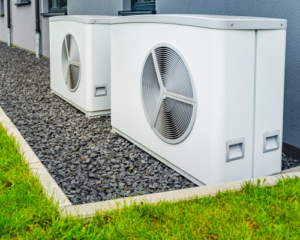 Are you wondering what a heat pump is and why it’s creating such a buzz in the world of renewable energy? Buckle up, because we’re about to take a delightful dive into the world of heat pumps – the unsung heroes of eco-friendly heating and cooling!
Are you wondering what a heat pump is and why it’s creating such a buzz in the world of renewable energy? Buckle up, because we’re about to take a delightful dive into the world of heat pumps – the unsung heroes of eco-friendly heating and cooling!
The Magic Behind the Machine: Imagine a device that can keep you cosy during those nippy winter nights and refreshingly cool when the summer sun is high. That’s a heat pump for you! But how does it work? It’s like a wizard that can reverse time but for temperatures.
In the Winter: The heat pump extracts warmth from the outside air (yes, even when it’s cold!) and transfers it indoors, giving you that snug, toasty feeling.
In the Summer: It flips the script! The heat pump takes the warm air from inside your home and sends it outside, leaving your space cool and comfortable.
It’s All About Efficiency: Heat pumps are a marvel when it comes to energy efficiency. Unlike traditional heating systems that generate heat, heat pumps simply move heat from one place to another – which takes significantly less energy. This means you can enjoy a comfortable home environment while reducing your energy bills and carbon footprint. A win-win for you and Mother Nature!
Why Choose a Heat Pump? Choosing a heat pump isn’t just about upgrading your heating and cooling system; it’s about choosing a sustainable future. Here’s why a heat pump is a smart move:
Energy Efficiency: Lower energy usage means lower bills and a happier planet.
Eco-Friendly: Reduce your carbon footprint and contribute to a greener world.
Cost-Effective: Save money in the long run with lower operational costs.
Versatility and Comfort: Enjoy consistent and comfortable temperatures all year round.
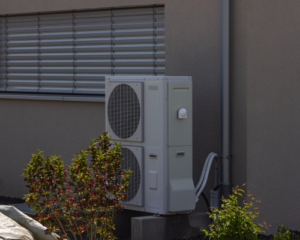 Heat Pump Installation Made Easy with Solares Energies: Thinking about a heat pump? You’re on the right track to eco-friendly living! At Solares Energies, we’re here to make your journey into the world of heat pumps as smooth and stress-free as possible.
Heat Pump Installation Made Easy with Solares Energies: Thinking about a heat pump? You’re on the right track to eco-friendly living! At Solares Energies, we’re here to make your journey into the world of heat pumps as smooth and stress-free as possible.
Your Heat Pump Guide: Choosing the right heat pump can feel like navigating a maze. That’s where we come in! As your professional guides, we’re here to assess your specific needs and recommend the best solution. Our approach? Tailor-made, just for you and your home. Also see Swimming Pool Heat Pump.
Exploring Your Options: The 3 Main Types of Heat Pumps. Every home is unique, and so is every heat pump. Here’s a quick guide to the three main types we offer:
 Air Source Heat Pump Systems
Air Source Heat Pump SystemsAir Source Heat Pumps: The popular choice for many! Ideal for moderate climates, these pumps use outside air in heat exchange. They are cost-effective to install and a great all-rounder. (Read More…)
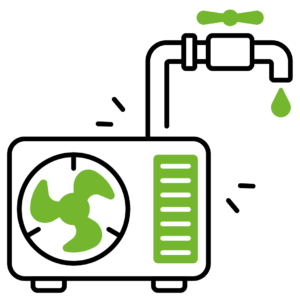 Water Source Heat Pump Systems
Water Source Heat Pump SystemsWater Source Heat Pumps: A unique option that uses water for heat dissipation. If you have access to a well, lake, or similar water source, this could be a cool choice for your home. They’re not as common, but they’re pretty impressive! (Read More…)
 Ground Source Heat Pump Systems
Ground Source Heat Pump SystemsGround Source Heat Pumps: The Underground Heroes. These pumps utilize the stable thermal energy stored beneath the surface. They’re more efficient thanks to the earth’s constant temperature, but keep in mind, that they do require a bit more work (think excavation and underground piping) during installation. (Read More…)
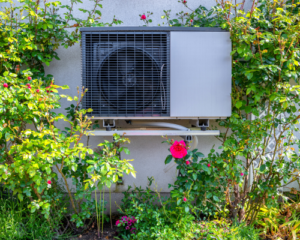 Are you considering a heat pump for your home but feeling a bit lost in the whirlwind of information? Worry not! Here at Solares Energies, we’ve crafted a list of advantages and disadvantages of owning a heat pump system to help you navigate the world of heat pumps. We believe in empowering you with knowledge, so you can make the best decision for your home and the planet.
Are you considering a heat pump for your home but feeling a bit lost in the whirlwind of information? Worry not! Here at Solares Energies, we’ve crafted a list of advantages and disadvantages of owning a heat pump system to help you navigate the world of heat pumps. We believe in empowering you with knowledge, so you can make the best decision for your home and the planet.
Advantages: Discover the energy efficiency, cost savings, and eco-friendly benefits.
Disadvantages: Understand the upfront costs, installation considerations, and how they perform in extreme weather.
It’s quick to read and packed with everything you need to know – the good, the not-so-good, and how it all works for your home.Make an informed decision with Solares Energies – your partners in sustainable living!
Locations: Heat Pumps Marbella | Heat Pumps Gibraltar | Heat Pumps Sotogrande | Heat Pumps Malaga | Heal Pumps Candiz
![]() Written By:
Written By:
Wesley Lally
![]() Updated on:
Updated on:
05th Feb 2024

 Other Pumps & Heater Systems
Other Pumps & Heater Systems
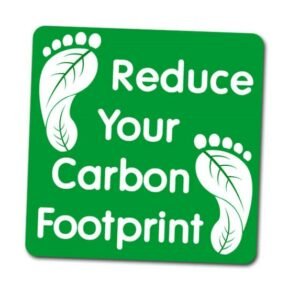


![]() Energy Efficiency: Heat pumps are known for their high efficiency, as they transfer heat rather than generate it. This makes them more energy-efficient compared to conventional heating and cooling systems.
Energy Efficiency: Heat pumps are known for their high efficiency, as they transfer heat rather than generate it. This makes them more energy-efficient compared to conventional heating and cooling systems.
![]() Lower Running Costs: Due to their efficiency, heat pumps can significantly reduce your energy bills over time compared to traditional heating systems.
Lower Running Costs: Due to their efficiency, heat pumps can significantly reduce your energy bills over time compared to traditional heating systems.
![]() Reduced Carbon Emissions: Heat pumps have a smaller carbon footprint since they use less electricity and can be powered by renewable energy sources.
Reduced Carbon Emissions: Heat pumps have a smaller carbon footprint since they use less electricity and can be powered by renewable energy sources.
![]() Heating and Cooling: Heat pumps provide both heating and cooling solutions, making them versatile for year-round comfort.
Heating and Cooling: Heat pumps provide both heating and cooling solutions, making them versatile for year-round comfort.
![]() Safety: They are generally safer than combustion-based heating systems as they don’t rely on burning fuel to generate heat.
Safety: They are generally safer than combustion-based heating systems as they don’t rely on burning fuel to generate heat.
![]() Long Lifespan: Heat pumps typically have a long lifespan, often ranging between 15 to 20 years, making them a durable investment.
Long Lifespan: Heat pumps typically have a long lifespan, often ranging between 15 to 20 years, making them a durable investment.
![]() Improved Air Quality: Many heat pump systems also function as air purifiers, improving indoor air quality by filtering out dust, mold spores, and other pollutants.
Improved Air Quality: Many heat pump systems also function as air purifiers, improving indoor air quality by filtering out dust, mold spores, and other pollutants.
![]() Eligibility for Rebates and Incentives: In many regions, installing a heat pump can qualify homeowners for rebates and incentives, reducing the overall investment cost.
Eligibility for Rebates and Incentives: In many regions, installing a heat pump can qualify homeowners for rebates and incentives, reducing the overall investment cost.
![]() High Initial Investment: The upfront cost of purchasing and installing a heat pump can be higher compared to traditional heating systems.
High Initial Investment: The upfront cost of purchasing and installing a heat pump can be higher compared to traditional heating systems.
![]() Complex Installation: The installation process can be complex, particularly for ground-source heat pumps, which may require excavation.
Complex Installation: The installation process can be complex, particularly for ground-source heat pumps, which may require excavation.
![]() Performance in Extreme Temperatures: While improving, the efficiency of some heat pump systems can decrease in extremely cold climates, requiring a supplemental heating system.
Performance in Extreme Temperatures: While improving, the efficiency of some heat pump systems can decrease in extremely cold climates, requiring a supplemental heating system.
![]() Space Requirements: Ground-source heat pumps need adequate space for installation of the ground loop.
Space Requirements: Ground-source heat pumps need adequate space for installation of the ground loop.
![]() Planning Permissions: In some cases, especially for ground-source heat pumps, planning permissions might be necessary.
Planning Permissions: In some cases, especially for ground-source heat pumps, planning permissions might be necessary.
![]() Dependence on Electricity: While more efficient, heat pumps still rely on electricity, which can be an issue in areas with frequent power outages or high electricity prices.
Dependence on Electricity: While more efficient, heat pumps still rely on electricity, which can be an issue in areas with frequent power outages or high electricity prices.
Abundant Advantages: From substantial energy savings and lower running costs to eco-friendly operations, learn how heat pumps offer a plethora of benefits.
Minimal Disadvantages: While no solution is perfect, our guide shows you how the few downsides, like initial investment and installation considerations, are minor compared to the multitude of positive impacts.
 Solares Energies has a full range of renewable energy products available for the home or business. If you would like to learn more please navigate to our “Renewable Energy Products and Services Page” or complete the “GET A QUOTE” enquiry form at the top of this page and an experienced engineer will call you back, at a time best suited to you.
Solares Energies has a full range of renewable energy products available for the home or business. If you would like to learn more please navigate to our “Renewable Energy Products and Services Page” or complete the “GET A QUOTE” enquiry form at the top of this page and an experienced engineer will call you back, at a time best suited to you.
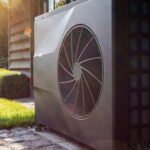


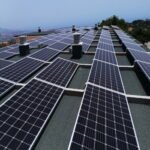
We supply, install and maintain solar panel systems and solar battery storage.
Improve energy efficiency and reduce your carbon footprint by installing an electric boiler.
We supply, install and maintain underfloor heating and cooling systems.
We supply, install and maintain uPVC windows and doors as well as double-glazing and composite doors.
User solar thermal as a renewable resource to heat up your household water supply.
Electric vehicle chargers supplied, installed and maintained by Solares Energies.
We supply, install and maintain heat pump systems. Reduce your carbon footprint.
Air conditioning systems supplied, installed and maintained by Solares Energies.

Whether you’re wondering about the best heat pump system for your energy needs, installation costs, maintenance requirements, or available government incentives, our FAQs provide clear, expert advice to help you make an informed decision. We also cover a comprehensive range of heat pump solutions across Málaga and Cádiz, ensuring you receive the most energy-efficient heating and cooling services in the region.
👉 Read our full FAQ section now and get all the answers you need to start enjoying sustainable comfort with Solares Energies! If you still have questions, contact us today for expert advice. 😊🔥
A heat pump is an energy-efficient system that provides both heating and cooling by transferring heat rather than generating it directly. It works by using a refrigerant cycle to extract heat from the air, ground, or water and moving it into or out of a building, depending on whether it’s in heating or cooling mode.
Key components of a heat pump system include:
Heat pumps are particularly efficient in warm climates like Spain, where mild winters and long summers make them an ideal alternative to traditional heating and cooling systems.
Heat pumps work by reversing the refrigeration cycle, allowing them to switch between heating and cooling modes. In winter, they extract heat from the outside air or ground and transfer it indoors. In summer, the process is reversed, removing heat from inside and releasing it outside.
How this dual functionality works:
This makes heat pumps a year-round climate control solution, eliminating the need for separate heating and cooling systems.
Heat pumps offer numerous advantages, particularly in Spain’s warm climate, where they provide efficient, low-cost heating and cooling while reducing carbon emissions.
Key benefits of heat pumps in Spain:
With Spain’s mild winters and hot summers, heat pumps are a cost-effective and sustainable solution for homes and businesses.
Yes! Spain’s warm climate and mild winters make it an ideal location for heat pump installations. Unlike traditional heating systems that rely on burning fuel, heat pumps use ambient air or ground heat, making them highly energy-efficient.
Because of Spain’s high solar energy potential, heat pumps can also be combined with solar panels for even greater energy savings.
Heat pumps are far more energy-efficient than traditional heating and cooling systems because they transfer heat instead of generating it. This allows them to produce 3 to 5 times more heat energy than the electricity they consume.
Efficiency comparison:
By choosing a heat pump, homeowners and businesses in Spain can cut heating and cooling costs significantly while reducing their carbon footprint.
The cost of installing a heat pump in Spain depends on the type, size, and complexity of the system. Prices typically range from:
While the initial investment may seem high, the long-term savings on energy bills and government incentives make heat pumps a cost-effective solution.
A high-quality heat pump can last between 15 to 25 years, depending on usage and maintenance. Regular servicing ensures peak efficiency and longevity.
Lifespan factors:
With proper care, a heat pump can outlast traditional heating systems while providing consistent savings.
Yes, heat pumps are highly versatile and can be installed in almost any type of home, from modern apartments to traditional villas and even historic properties. The type of heat pump system required will depend on factors such as space availability, existing heating infrastructure, and insulation levels.
Air-source heat pumps are the most flexible, as they can be installed in homes with or without central heating, while ground-source heat pumps require more space for underground piping. For coastal homes in Málaga and Cádiz, heat pumps with corrosion-resistant components are recommended to withstand the humid, salty air.
The installation time for a heat pump system depends on its size, type, and complexity. Most air-source heat pumps can be installed within 1 to 3 days, while ground-source heat pumps, which require excavation for underground piping, may take one to two weeks.
The process typically includes site assessment, unit placement, electrical connections, and system testing. At Solares Energies, we ensure a smooth, professional installation, minimiSing disruption to your home or business.
The space needed depends on whether you are installing an air-source, ground-source, or hybrid heat pump. Air-source heat pumps require an outdoor unit, which should be placed in a well-ventilated area such as a garden, terrace, or rooftop.
Ground-source heat pumps need space for underground piping, making them better suited for larger properties or commercial buildings. For homes in compact urban areas, wall-mounted or rooftop-mounted air-source heat pumps offer a space-saving solution.
Absolutely! Heat pumps are highly effective for commercial applications, providing cost-efficient climate control for hotels, offices, restaurants, and industrial buildings.
Businesses in Málaga and Cádiz benefit from lower energy costs and the ability to meet sustainability goals by reducing reliance on fossil fuels. At Solares Energies, we offer customized heat pump solutions for commercial buildings, ensuring they meet local regulations and energy efficiency standards.
Yes, most air-source heat pumps require an outdoor unit to extract or release heat. However, for properties in restricted areas, such as listed buildings or apartments, there are compact, internal heat pump systems available that use water-cooled technology instead of an external unit.
Yes, integrating a heat pump with a solar panel system is one of the best ways to maximise energy savings. By using solar energy to power your heat pump, you can reduce electricity costs even further and achieve greater energy independence. At Solares Energies, we specialise in designing hybrid solar panels and heat pump systems, ensuring optimised efficiency for homes and businesses in Málaga and Cádiz.
Most modern homes and businesses in Spain have sufficient electrical capacity for heat pump installation. However, in older properties, an electrical assessment may be required to determine if upgrades to the wiring or circuit board are necessary. High-capacity heat pump systems may require dedicated circuits to handle the power load safely.
Yes, heat pumps are one of the most efficient and cost-effective ways to heat a swimming pool, providing consistent water temperatures while using renewable energy sources. Unlike traditional pool heaters that rely on gas or electric resistance heating, pool heat pumps extract heat from the surrounding air and transfer it to the pool water, consuming significantly less energy.
At Solares Energies, we provide high-performance swimming pool heat pumps designed for Spain’s climate, ensuring energy savings and extended swimming seasons.
Yes! Powering a heat pump with solar panels is one of the best ways to maximise energy efficiency and reduce electricity costs. Since heat pumps run on electricity, using a solar panel system allows you to generate free, renewable energy to power your heating and cooling system.
At Solares Energies, we design integrated solar and heat pump systems, ensuring maximum efficiency and cost savings for homes and businesses. Whether you’re looking to heat your pool, home, or business, our experts will help you create a tailored renewable energy solution.
At Solares Energies, we install high-efficiency heat pump systems throughout Málaga and Cádiz, ensuring homeowners and businesses benefit from year-round energy savings and sustainable heating solutions.
We install heat pumps in coastal, urban, and rural locations across Málaga, including:
We also install heat pump systems in key locations across Cádiz province, including:
If you don’t see your area listed, contact Solares Energies today! We offer customisd heat pump solutions throughout Málaga and Cádiz, ensuring every client benefits from efficient, sustainable, and cost-effective heating and cooling.
Sadly many companies throughout Spain are not qualified or experienced in, supplying and installing a Heat Pump System. Solares Energies has a wealth of knowledge and experience in supplying, installing and maintaining Heat Pump Systems.
© 2025 SOLARES ENERGIES ALL RIGHTS RESERVED POWERED BY MINUS 5 MEDIA & DIGITAL MARKETING AGENCY.ES
